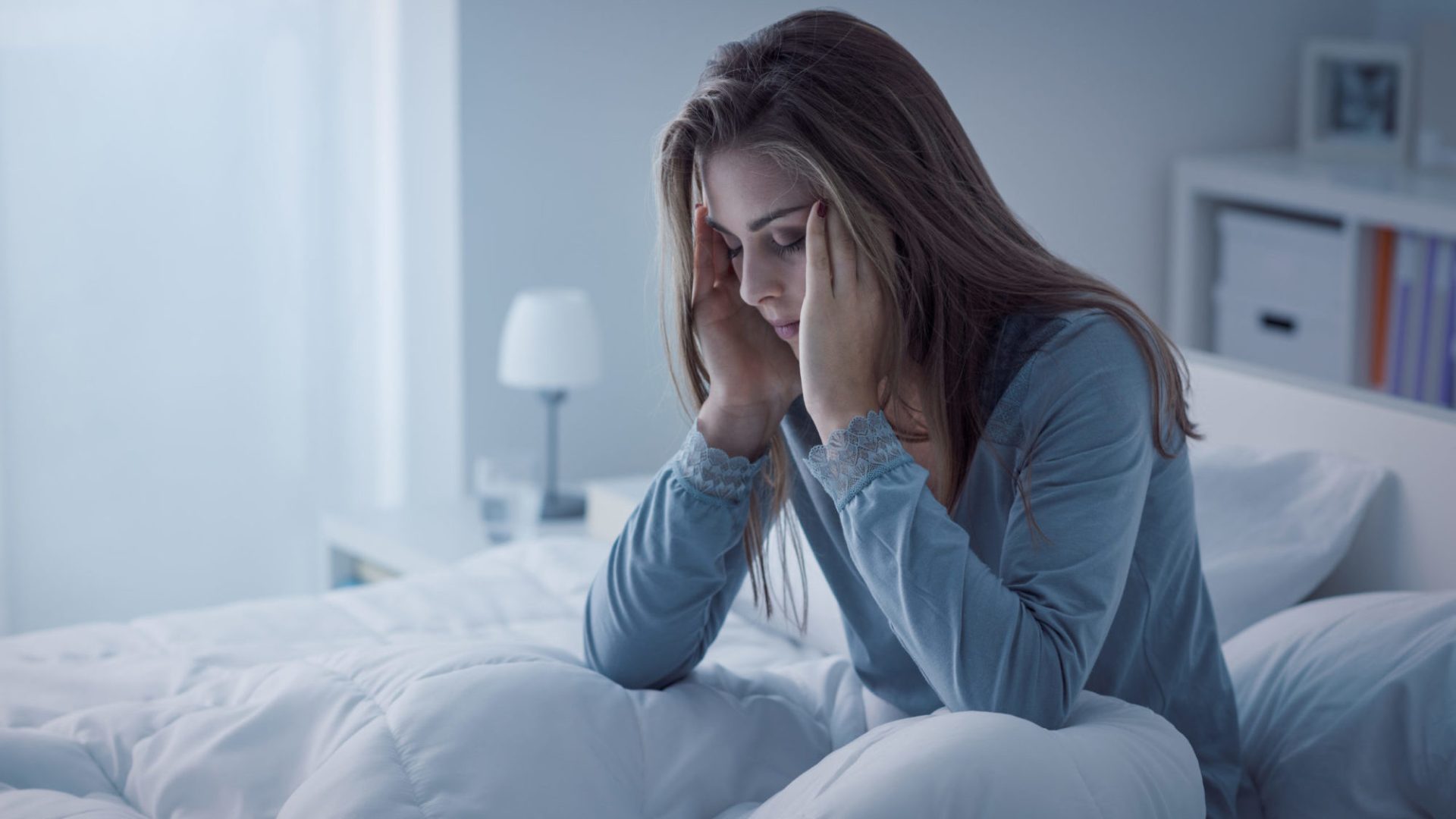
Anxiety Disorder
Getting Help for Serious Anxiety
Table of Contents
Everyone feels anxious from time to time. These feelings are a normal response to common stresses and worries. In most cases, anxiety lasts for limited amounts of time and then fades away. However, for some people, it lingers or has an unusually intense impact. If your feelings of anxiousness last for long periods of time or overwhelm you, you may have an anxiety disorder.
Anxiety disorders significantly disrupt your ability to function. And if they go untreated, they can grow much worse over the months and years. These disorders are not rare. In fact, they are the most widespread mental health conditions in America. Almost one in five of all adults is affected.
Fortunately, you can get help for serious anxiety. There are evidence-based treatments for all types of anxiety disorders. Even if you are severely affected by your condition, you can recover.
What Is Anxiety Disorder
Anxiety is your body’s stress alert system. When it appears, it typically makes you feel worried or afraid. These feelings manifest in a variety of ways, including such things as:
- An inability to concentrate
- Racing thoughts
- A sense of dread or panic
- A heightened level of alertness
- Jumpiness or irritability
- Sleeping difficulties
- Stomach or abdominal distress
- A rapid heartbeat
- Rapid breathing
- Heavy sweating
- Hand or body tremors
- Lack of appetite or an increase in appetite
While unpleasant, these changes in your mind and body are not typically harmful if they do not last. In fact, you may even find them helpful in certain situations. However, if they linger or grow too strong, they can begin to harm your health.
Anxiety disorders are diagnosed when your feelings of worry or fear:
- Impair your day-to-day function
- Are disproportionate or not warranted for the situation
- Do not seem appropriate for your age
The majority of these disorders first appear at age 20 or younger.
Types of Anxiety Disorders
You may be affected by any of several different anxiety disorders. Illnesses found within this category include:
- Social anxiety disorder
- Panic disorder
- Generalized anxiety disorder
- Agoraphobia
- Specific or simple phobias
You may also suffer from a condition called separation anxiety disorder. Once considered a childhood illness, it is now known to also affect adults, as well. Each anxiety disorder produces its own distinct effects.
Signs and Symptoms of Anxiety Disorders

All anxiety disorders produce similar mental and physical effects. What is most distinctive about them is the circumstances in which these effects appear.
Social Anxiety Disorder
People with this condition feel extremely anxious in social situations or when performing in public. Their feelings stem from concern over being judged negatively by other people. Your fear and worries may lead you to steer clear of any situation that calls for social interaction.
Panic Disorder
Panic disorder is diagnosed when you experience multiple panic attacks. That is the name for bouts of extreme fear that strike you suddenly. Panic attacks may be intense enough to make you feel like you are dying. Some people experience these episodes more or less at random. They may also appear in situations where you know in advance that you are prone to panic. In addition, episodes may occur when you are exposed to certain things or objects.
Generalized Anxiety Disorder
This disorder is “generalized” because it can affect you in a range of circumstances. Common triggers for your anxiety may include:
- Your workplace
- Interactions with other people
- Your school or classroom
- Any other typical part of your daily routine
Agoraphobia
Agoraphobia produces extreme fear of being trapped or left helpless in certain situations. As a result, you do whatever you can to avoid those situations. Common sources of agoraphobic feelings include:
- Riding a bus or train
- Having to be in an enclosed or open space
- Standing in a crowd or line
- Leaving your home, either alone or in any circumstances
Specific or Simple Phobia
People with specific phobia feel extreme anxiety or fear only in certain, narrowly defined circumstances. For example, you may have a fear of heights or flying in airplanes. You may also have a fear of particular insects or animals. Other common phobias include fear of needles and fear of the sight of blood.
Anxiety Disorder Causes and Risk Factors
No one knows for sure why any one person develops an anxiety disorder. However, there is clear evidence that these conditions have some genetic risk factors. This means that you can be born with a tendency toward unusual anxiousness, fear or worry. You also have increased risks if you have relatives with a history of mental illness. That includes conditions other than anxiety disorders.
Anxiety disorders also have environmental risk factors. Potential issues here include:
- Being exposed to serious trauma as a child
- Experiencing childhood neglect
- Going through serious trauma as an adult
Some of the risk factors for anxiety disorders straddle the line between genes and environment. For example, you may feel socially inhibited or shy. Potential physical contributors include irregular heartbeat and thyroid dysfunction. In addition, your substance, medication or caffeine use may have a significant impact.
Anxiety Disorder Diagnosis

When diagnosing anxiety disorders, doctors do two things. First, they make sure that your symptoms do not have another cause. This is necessary because multiple medical conditions can produce similar mental and physical effects. To rule out other potential causes, you may need to:
- Go through a physical examination
- Undergo blood tests
- Answer a series of questions from your doctor
Once other causes are eliminated, your doctor will take steps to identify your particular illness. Each disorder has its own unique identifiers. That includes the specific circumstances in which your symptoms appear. It may also include how long they last or the number of times they appear.
For example, to be diagnosed with generalized anxiety disorder, your symptoms must be present for at least six months. To be diagnosed with panic disorder, you must experience at least two panic attacks. To be diagnosed with agoraphobia, you must have at least two trigger situations.
Addiction and Anxiety
If you have an anxiety disorder, you also have increased risks for substance problems. This link is not limited to anxiety-related conditions. It is also present in all other forms of major mental illness. Doctors refer to this crossover of addiction and mental illness as dual diagnosis.
Your anxiety disorder may appear before your substance problems. However, your substance problems may also appear before your anxiety disorder. Half of all people with a mental illness are affected by substance abuse or addiction.
Anxiety Disorder Treatment and Therapy Options
Medications and psychotherapy are the two main treatment options for anxiety disorders. You may also receive help from other, complementary health techniques. Some treatment plans only include medication or therapy. But plans that include both of these options are common.
Medication
Two types of medications are widely used: anti-anxiety medications and antidepressants. Most of the anti-anxiety options are benzodiazepine tranquilizers or sedatives. These medications work by slowing down your nervous system. Unfortunately, since benzodiazepines are addictive, you can only take them for limited amounts of time.
As their name suggests, antidepressants are mostly used to treat depression. However, they can also help control the symptoms of several anxiety disorders. There are many different categories and individual types of antidepressants. As a rule, you can take these medications longer than you can take benzodiazepines.
You may also receive a high blood pressure medication called a beta-blocker. These medications are used to ease some of the physical effects of serious anxiety. Typically, beta-blockers are prescribed short-term or only in specific situations.
If you have dual diagnosis, you treatment plan may also include medication for your substance problems. The specific options depend on your particular substance disorder.
Therapy
Cognitive Behavioral Therapy, or CBT, is the frontline therapy for anxiety disorders. Two types of CBT are used to help you. The first is Cognitive Therapy. This therapy helps you change distorted thought patterns that support anxiety. The second approach is Exposure Therapy. This therapy gradually exposes you to your anxiety triggers. Over time, you grow less sensitive to them, and thereby lower your anxiety levels.
If you have dual diagnosis, your therapy options may also include Dialectical Behavior Therapy, or DBT. This therapy is used because it helps you recover from both anxiety disorder and substance problems. DBT provides a benefit by improving your self-awareness and emotional control.
Complementary Health Techniques
Complementary health techniques are not used on their own. Instead, they are used to support your overall wellness while you receive medication or therapy. Relaxation exercises are a common complementary option. Your doctor may also recommend some form of stress management.
Get More Information on Anxiety Disorders
There is a roughly 19 percent chance that any given person will develop an anxiety disorder at some point. If you feel that you are affected, the best response is to seek treatment as soon as possible. Today, all standard treatments are evidence-based. This means that they are proven to help a large number of affected people. Not all treatments work for everyone. However, your doctor can help you create a customized recovery plan that works for you.
For more information on anxiety disorders and anxiety treatment, contact the experts at Emerald Isle today. We specialize in the treatment of a range of mental health conditions, including anxiety-related illnesses. We also specialize in the treatment of substance problems and dual diagnosis. All of our plans are customized to meet your specific needs. With our help, you can recover from any form of anxiety disorder or dual diagnosis.